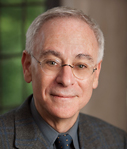The only way that scholars can fulfill the university’s mission of creating new knowledge is through academic freedom, says Robert Post, the Sol & Lillian Goldman Professor of Law and Yale Law School dean.
“Academic freedom insulates scholars from the political pressure of public opinion so that they can pursue the disciplinary practices by which expert knowledge is created and certified,” says Post, who next week will give the University Senate’s 22nd annual Davis, Markert, Nickerson Lecture on Academic and Intellectual Freedom.
The lecture, which is free and open to the public, is scheduled at 4 p.m. Nov. 1 in the Honigman Auditorium, 100 Hutchins Hall, at the Law School.

Post
Post says the first and arguably greatest articulation of the logic and structure of academic freedom in America was the American Association of University Professors 1915 Declaration of Principles on Academic Freedom and Academic Tenure.
Scholars have interpreted the First Amendment to mean that every person has an equal right to speak as he or she thinks right, he says.
“The state is therefore constitutionally prohibited from disciplining our communication on the basis of an official view about what is proper or correct,” says Post, whose subject areas are constitutional law, the First Amendment, legal history and equal protection.
“The First Amendment stands for the proposition that we are not the students of the state. We are adults who are constitutionally empowered to speak for ourselves.” The First Amendment protects the freedom necessary to participate in the formation of public opinion.
The problem addressed by Post is that because the First Amendment protects speech in order to protect the formation of public opinion, it undercuts the disciplinary regulation of speech within modern universities that is necessary to produce knowledge, as distinct from opinion.
Post has written and edited numerous books, and he publishes regularly in legal journals and other publications. He is a member of the American Philosophical Society and the American Law Institute and a fellow of the American Academy of Arts and Sciences.
The lecture is named for three U-M faculty members — Chandler Davis, Clement Markert and Mark Nickerson — who in 1954 were called to testify before a Congressional Committee on Un-American Activities. All invoked constitutional rights and refused to answer questions about their political associations. All three were suspended from the university. Markert was subsequently reinstated, and Davis and Nickerson were dismissed.
The 2012 Davis, Markert, Nickerson Lecture on Academic and Intellectual Freedom is sponsored by the Academic Freedom Lecture Fund, American Association of University Professors University of Michigan-Ann Arbor Chapter and Michigan Conference; and at U-M: the Office of the President, Office of the Provost, Office of the Vice President for Global Communications, Law School, the Senate Advisory Committee on University Affairs and an anonymous donor.

